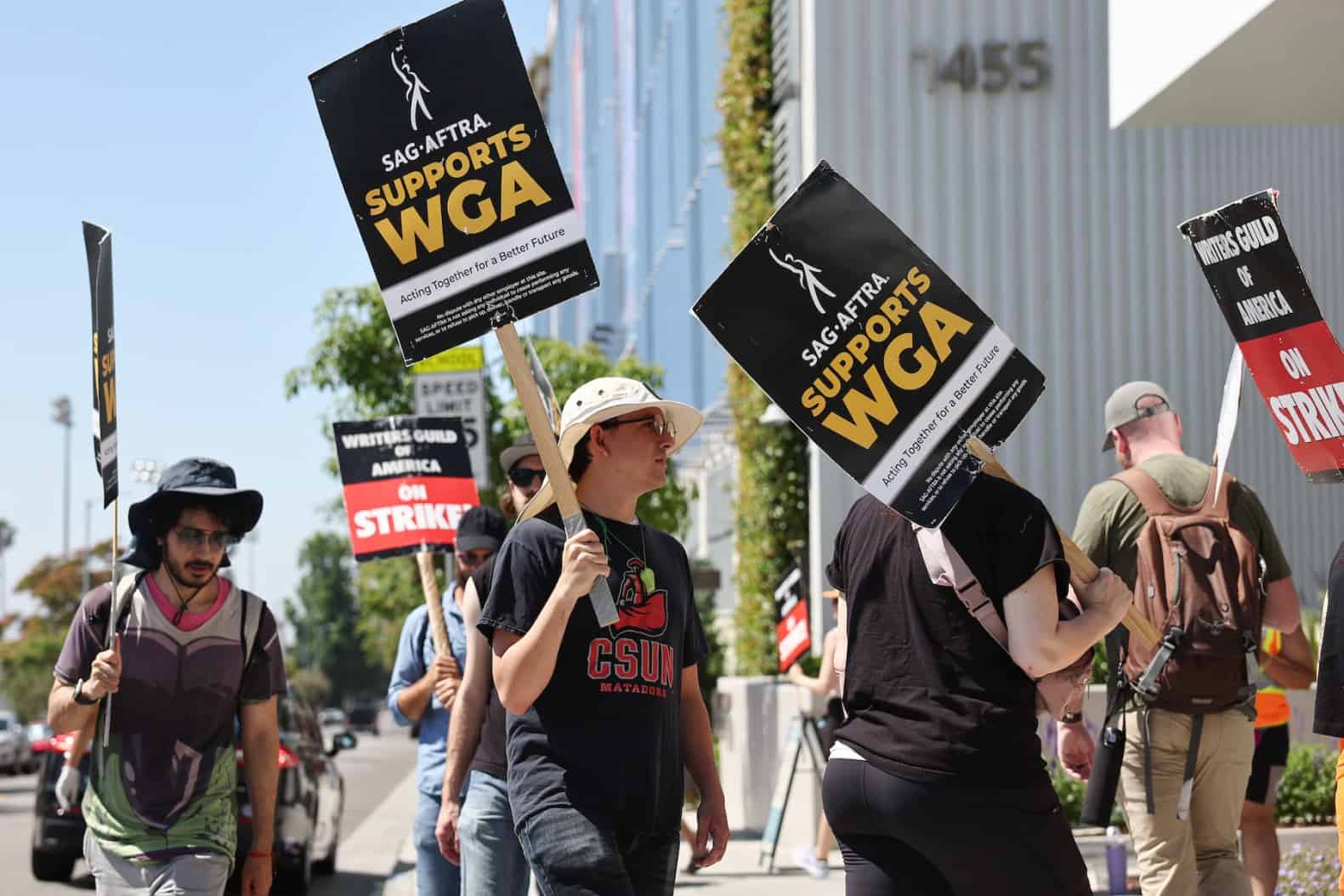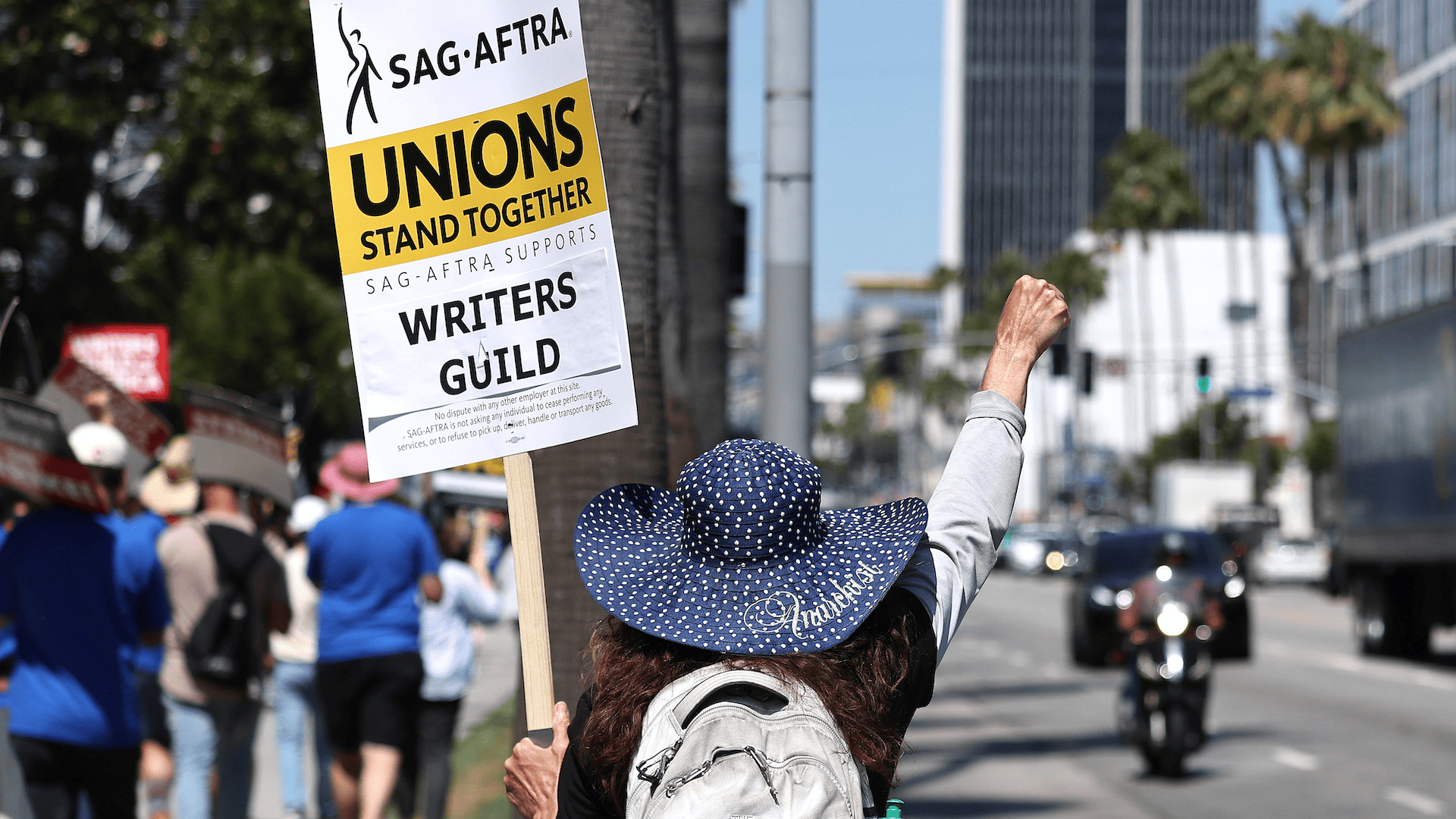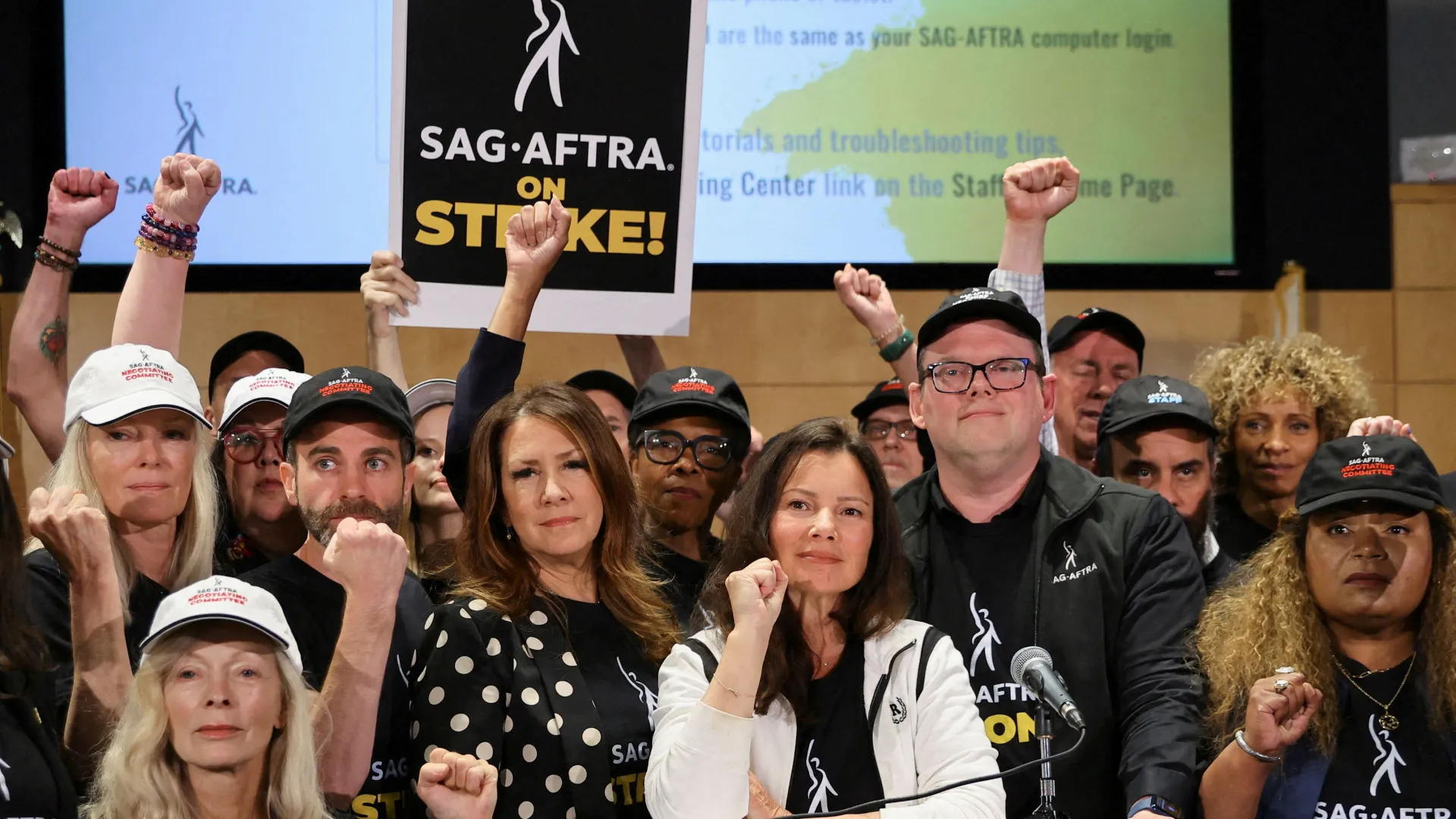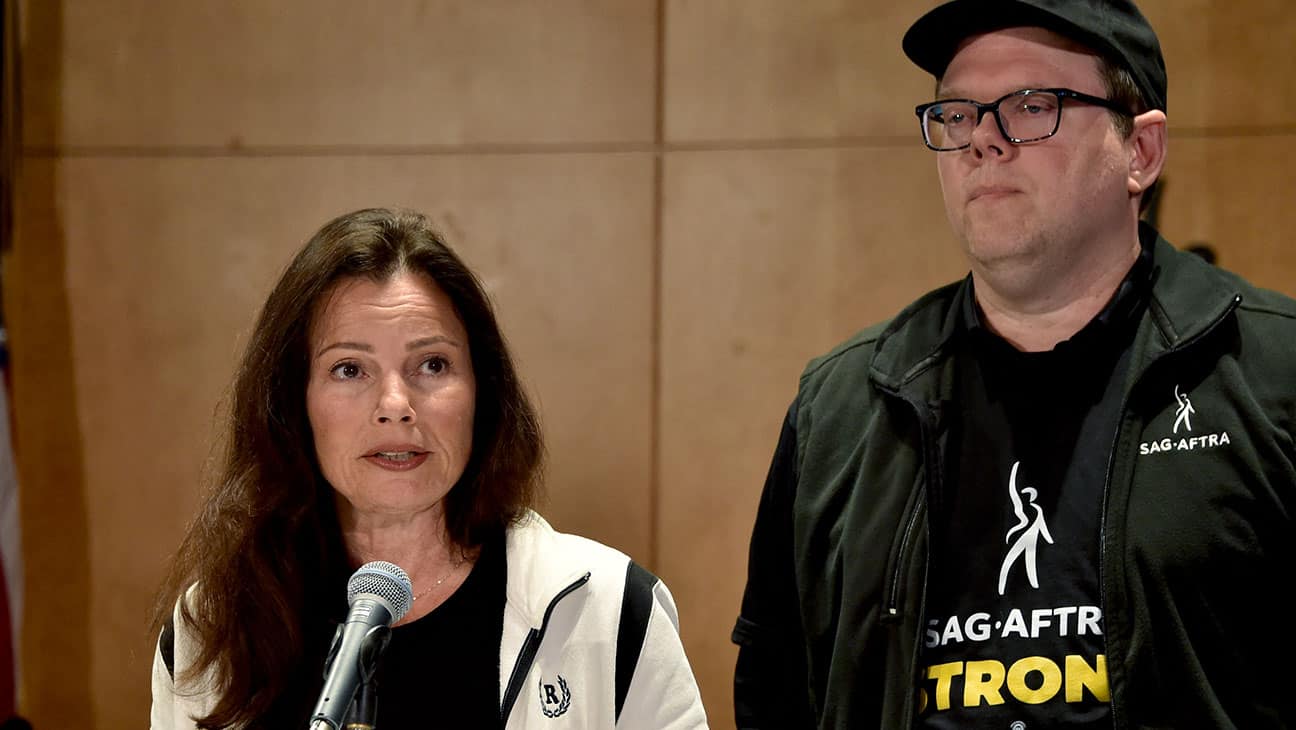In an unexpected turn of events, Hollywood grapples with simultaneous strikes by two significant unions representing actors and screenwriters. The Screen Actors Guild-American Federation of Television and Radio Artists (SAG-AFTRA) had recently met the Alliance of Motion Picture and Television Producers (AMPTP to come to an agreement on the contract deadline, which expired on July 12, 2023, but the deal was not successful as they announced plans for an actors’ strike.
So now, after 60 years, SAG-AFTRA is going on a strike along with the ongoing Writers Guild of America (WGA) strike. It is expected to have a considerable impact on the entertainment industry, and its implications are massive as the strike now enters its 9th week.
SAG-AFTRA: What You Should Know
The Screen Actors Guild – American Federation of Television and Radio Artists, abbreviated as SAG-AFTRA, is a merged union that represents approximately 160,000 actors, broadcast journalists, announcers, singers, models, hosts, stunt performers, and other media professionals around the world, with its headquarter located at Los Angeles, California.
The union was founded 11 years ago, on March 30, 2012, and negotiated collective bargaining agreements and represented studios, production companies, and streaming services.
These agreements address essential aspects such as pay, working conditions, and residuals. It was formed following the merger of the Screen Actors Guild, which was formed in 1933, and the American Federation of Television and Radio Artists, which was founded in 1937 as the American Federation of Radio Artists. SAG-AFTRA is a member of the largest federation of unions in America, AFL–CIO, and the International Federation of Actors (FIA).
The first president of the trade union was Ken Howard, and the current president was Fran Drescher. The current National Executive Director of the association is Duncan Crabtree-Ireland.

Exploring the Actors’ Demands: What SAG-AFTRA Wants for its Members
SAG-AFTRA members are seeking better pay and working conditions in response to the changing landscape of the entertainment industry, shaped by streaming platforms and emerging technologies like artificial intelligence (AI). They are concerned about declining residuals and wages that have yet to keep up with inflation.
Additionally, actors are demanding safeguards against the unregulated use of AI, which can reproduce their likenesses or performances. They want guarantees on how studios and production companies will deploy AI.
How will a strike affect Hollywood?
An actors’ strike empowers the collective strength of workers to negotiate improved terms in their next contract with the AMPTP. As actors withhold their labor and the profits it generates, studios and production companies are likely to feel pressure to propose a deal that brings the actors back to work.
However, the strike will result in the indefinite shutdown of a majority of film and television sets, leading to delays in new releases and disruptions in the entertainment calendar. Due to the strike, there will be a prohibition for actors from promoting their works, which includes participation in premieres, press meets, and interviews. However, the News and broadcast programs will be unaffected.

Also Read: WWE SmackDown Gets a Surprise Visit: Vince McMahon Backstage at Madison Square Garden
Have actors gone on strike before? What about the writers’ strike?
SAG has a history of strikes, with the first occurring in 1952 and the most recent in 2000. The longest-ever actors’ strike occurred in 2000, lasting six months. Negotiations broke down over compensation for work in broadcast, cable, and internet commercials.
The Writers Guild of America (WGA) initiated its strike in early May, primarily driven by similar concerns as SAG-AFTRA, including media residuals and the use of AI. This is the first time that both actors and writers have simultaneously gone on strike since 1960. The joint strike in 1960 lasted for nearly six months, with SAG and WGA picketing together.
The simultaneous strikes by SAG-AFTRA and the WGA are set to have significant consequences for Hollywood. The shutdown of film and television production will cause release delays and impact the entertainment calendar. Audiences will have to wait longer to see new seasons of their favorite shows, and late-night talk shows may go on hiatus.

Furthermore, actors will be restricted from promoting their projects. These strikes reflect the changing dynamics of the entertainment industry and the need for fair compensation and protection in the face of evolving technologies and streaming platforms.
As negotiations continue, the outcome will shape the future of the industry and the relationship between unions and the entertainment establishment.
Also Read: Nina Dobrev Dazzles in crystals Wearing Khaite Minidress at ‘The Out-Laws’ Screening




